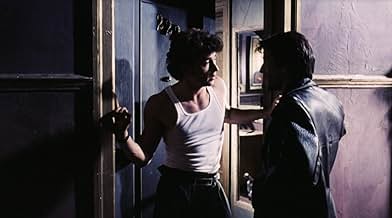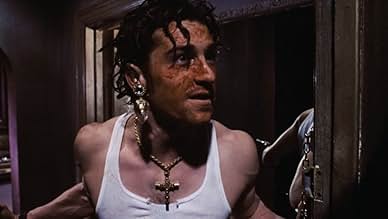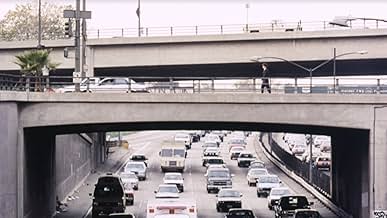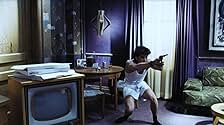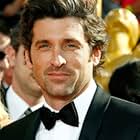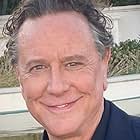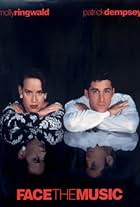A small-time crook hides out in a seedy motel where shady characters recognise him and demand money to keep quiet.A small-time crook hides out in a seedy motel where shady characters recognise him and demand money to keep quiet.A small-time crook hides out in a seedy motel where shady characters recognise him and demand money to keep quiet.
Lisa Spikerman
- Candy
- (as Lisa Marie Spikerman)
Josh DeBear
- Delivery Boy
- (as Josh De Bear)
- Director
- Writer
- All cast & crew
- Production, box office & more at IMDbPro
Storyline
Did you know
- TriviaBilly runs down to the end of Lonely Street and into the Heartbreak Hotel, exemplifying the lyrics to the eponymous Elvis Presley song.
- Alternate versionsOriginally released in US theatres with a NC-17 rating; video version is edited and is rated R.
- SoundtracksHow Do You Feel
written by R. Fox, K. David, M. Gurley, L. Guitierrez
performed by the Del Rubio Triplets
Featured review
William Elliot aka Billy the Kid (Patrick Dempsey) is a romantic and decides to do one last bank robbery solo for girlfriend Selina (Olivia d'Abo). Security camera captures his picture and he's identified right away. The bank claims his take at $178k, but most of which the bankers are stealing themselves. Billy tries to hide in his Heartbreak Hotel room but his neighbors realize his identity. Everybody starts overcharging him for everything from pizza to drugs despite not ordering any of it. Priscilla (Lisa Bonet) is a friendly hooker. Officers Gross (Judge Reinhold) and Battle (Forest Whitaker) get high. TV reporter Marisa Benoit (Mariska Hargitay) shows up at Billy's door with her crew.
I think writer/director Nick Mead wanted this to be a funny satire of a crime noir. None of it is funny. It also has no tension as a thriller. It looks cheap and badly made. The amazing thing is the number of solid actors in this movie. The writing is simply bad and the filming is amateurish. It's a rambling mess that adds up to nothing.
I think writer/director Nick Mead wanted this to be a funny satire of a crime noir. None of it is funny. It also has no tension as a thriller. It looks cheap and badly made. The amazing thing is the number of solid actors in this movie. The writing is simply bad and the filming is amateurish. It's a rambling mess that adds up to nothing.
- SnoopyStyle
- Sep 8, 2016
- Permalink
- How long is Bank Robber?Powered by Alexa
Details
- Release date
- Country of origin
- Language
- Also known as
- Ladrón de bancos
- Filming locations
- California, USA(Location)
- Production companies
- See more company credits at IMDbPro
Box office
- Budget
- $2,000,000 (estimated)
- Gross US & Canada
- $115,842
- Opening weekend US & Canada
- $34,998
- Dec 12, 1993
- Gross worldwide
- $115,842
- Runtime1 hour 31 minutes
- Color
- Sound mix
- Aspect ratio
- 1.85 : 1
Contribute to this page
Suggest an edit or add missing content



